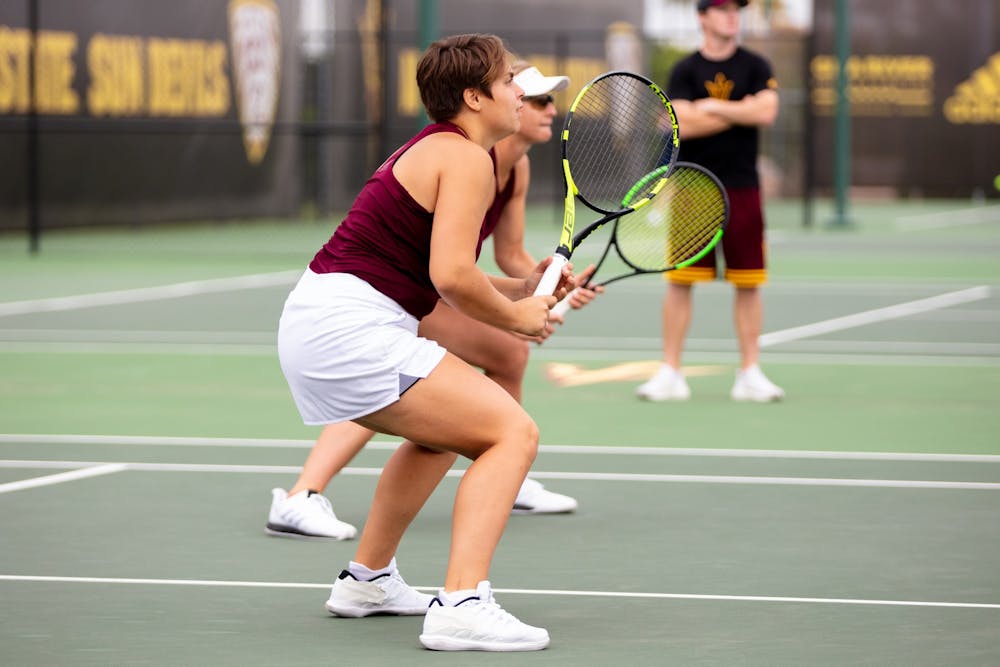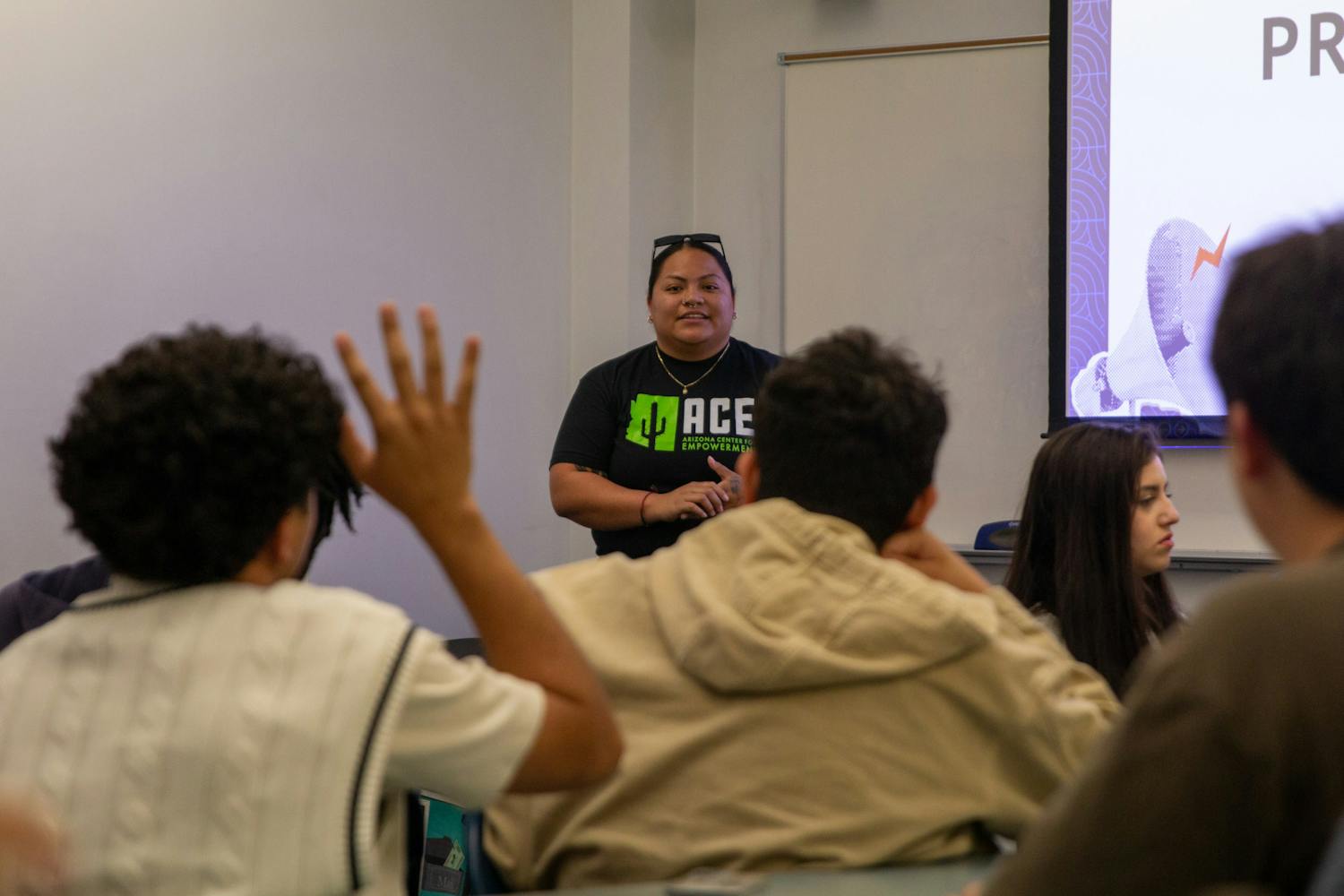From 1976-1983, Sheila McInerney was a four-time All-American tennis player, a vital part of three national title-winning teams at USC and one of the top 75 professional players in the world.
At just 19 years old, she pushed Billie Jean King to a decisive third set in the third round of the U.S. Open.
Yet, for all of those accomplishments, her playing resume is generally overlooked.
It has, understandably, been overshadowed by her exceptional 36-year run as the head coach of ASU's women’s tennis team. McInerney enters the 2020-21 season as the fifth winningest coach in NCAA history, having carried the Sun Devils to 32 straight NCAA tournament appearances and a total of 13 top ten finishes.
“Her reputation in college tennis is second to none,” associate head coach Matt Langley said.
McInerney has thrived as a coach, player and teammate by embracing the same qualities: her competitiveness, her work ethic and the value she places on cultivating a team spirit in a sport that is inherently cutthroat and individualistic.
On the court as a junior, McInerney was consistently ranked in the top 10 nationally, which earned her the opportunity to play at the University of Southern California. Despite physical limitations, she was dominant at the college level by outworking the competition and playing with tremendous consistency, forcing opponents to essentially beat themselves by making errors.
“You could always count on Sheila,” said Barbara Hallquist DeGroot, one of McInerney’s doubles partners at USC and on the professional tour, and a U.S. Open quarterfinalist in both singles and doubles. “If it was a big point, her return was going in.”
McInerney’s dependability transcended her performance on the court. She also prided herself on being an exceptional teammate and was voted the winner of the Trojan Spirit Award by her teammates at USC for four straight years.
“She was always so supportive,” DeGroot said. “Even if she was down on herself, she was still trying to keep the team together. It was almost like having a third coach for our team.”
Although McInerney was, in DeGroot’s words, “fiery competitive,” her love of the game was enhanced by the nurturing team atmosphere of college tennis.
“I think my interest in coaching came when I got to college and really enjoyed having teammates,” McInerney said. “It’s not easy to be playing out there on your own all the time.”
After college, McInerney spent three years on the professional tour as a self-described “journeyman,” competing in three of the four Grand Slams and facing off against several legends of the sport, such as King, Tracy Austin and Pam Shriver.
Whereas modern pros tend to remain distant from other players, sticking close to their own “entourages,” McInerney spent her three years as a pro traveling, bunking and practicing with fellow players, recreating an atmosphere somewhat like that of a college team.
But after a few years, McInerney’s competitive fire began to dwindle.
“When the losses don’t hurt as much, maybe it’s time to get out and do something else,” McInerney said.
In 1983, following her retirement as a player, she returned to USC to work as an assistant to her former coach Dave Borelli, where she had a tremendous experience.
“Dave treated me like somewhat of a co-coach, so I felt that I was really part of it,” McInerney said.
McInerney only spent one season at USC before taking the head job at ASU at just 26 years old. She has recreated that collaborative environment 36 years later in her own program.
“She’s always said to me, ‘we’re co-coaches,’” Langley, in his sixth year with the program, said. “She understands some things that she does well and some things that I do well and how we can complement each other.”
Langley said trust and that feeling of community extend into McInerney’s interactions with volunteers, employees in charge of travel plans and anyone else involved with the program.
“People see the (coaching) records. She was a great player, too. But, I think one thing that people don’t realize is the kind of person she is to the people who work for her,” Langley said.
After over 40 years involved with college tennis as both a player and a coach, McInerney still hates to lose, and she still works tirelessly, citing the mantra, “If you don’t get better, you get worse” as one of her favorites. But above all else, what sets McInerney apart is the emphasis she places on the environment she fosters and the people who she surrounds herself with.
“The key to anything is the relationships you have,” McInerney said. “At the end of the day, you remember those more than anything.”
Reach the reporter at cbreber@asu.edu and follow @carsobi on Twitter.
Like State Press Sports on Facebook and follow @statepresssport on Twitter.




